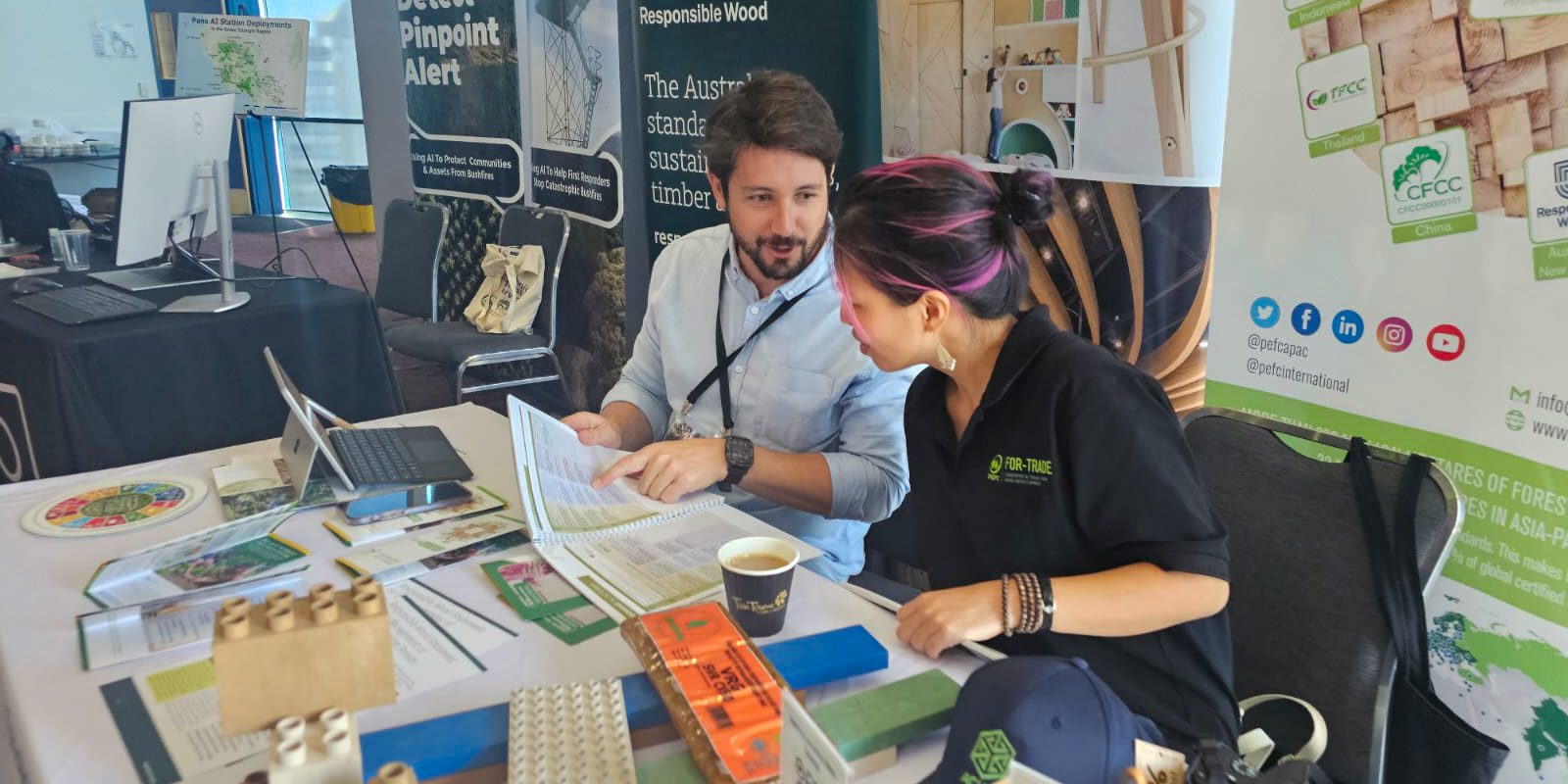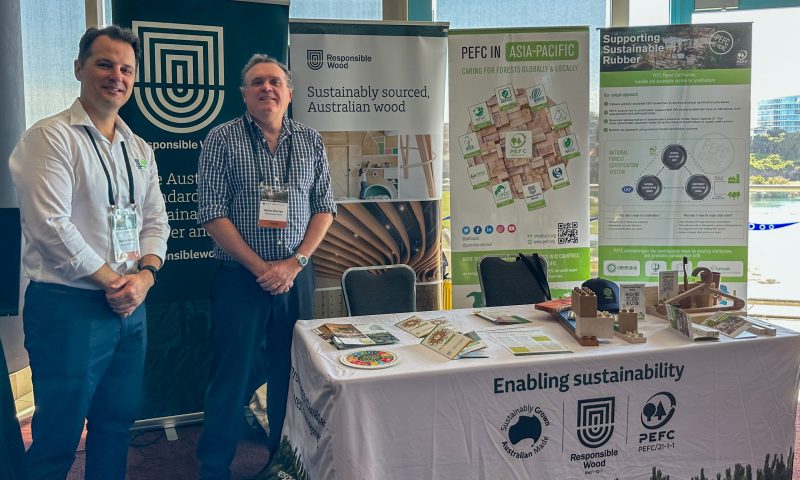Conference Puts Sustainable Forest Management Certification in Spotlight
The 2023 ANZIF Conference, a key event for forest scientists, foresters, and forest industry professionals in the Asia-Pacific region, recently concluded, running from October 15 to October 18. Jointly organised by Forestry Australia and The New Zealand Institute of Forestry, this conference drew participants from various corners of the forestry industry to delve into the theme, “Embracing Our Natural Capital: The Science, Technology, and Art of Managing Forests For All Values.”
The conference, held at the stunning Twin Towns Conference Centre on the Gold Coast, provided a great opportunity for professionals to engage in discussions, build networks, and collaborate on innovative approaches to managing natural capital. One key focus throughout the event was the role of sustainable forest management certification, with presentations by four of our own speakers representing Responsible Wood and PEFC International.
Jonathan Tibbits, presenting for Responsible Wood, shed light on the power of social media as a communication tool to build social license. In his presentation, Jonathan emphasised how certification plays a crucial role in building trust and legitimacy, saying,
“Certification assures consumers and advocates that organisations are committed to sustainable forestry practices. It’s a way to communicate that an organisation is taking responsible sourcing seriously.”
He raised the question,
Are we really effectively communicating and hoping to build social license if we are not communicating in digital ecosystems where all the attention is?
In addition to his presentation, Jonathan participated in a workshop run by Beth Whelden. The workshop focused on the role of forest education through the FWPA ForestLearning program. Jonathan’s engagement, along with several other key industry voices, in this workshop further emphasised the importance of collaboration and education in promoting responsible forest management and sustainable practices.
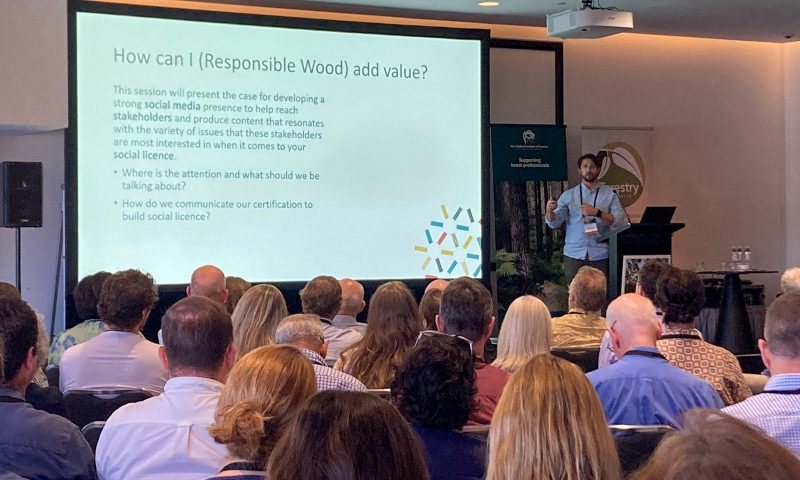
Jonathan Tibbits presents to ANZIF 2023 attendees social media, key messaging and stakeholders.
Richard Laity, from PEFC International, underlined the significance of stakeholder dialogues in achieving sustainable forest management. He explained that engaging with stakeholders, which include smallholders in the Asia Pacific and local communities, ensures a well-rounded approach to decision-making in the industry.
“Stakeholder dialogues help us consider diverse perspectives and build trust among communities,”
Laity pointed out.
“By involving stakeholders, we empower them to take ownership of forestry initiatives. We build standards from the bottom-up.”
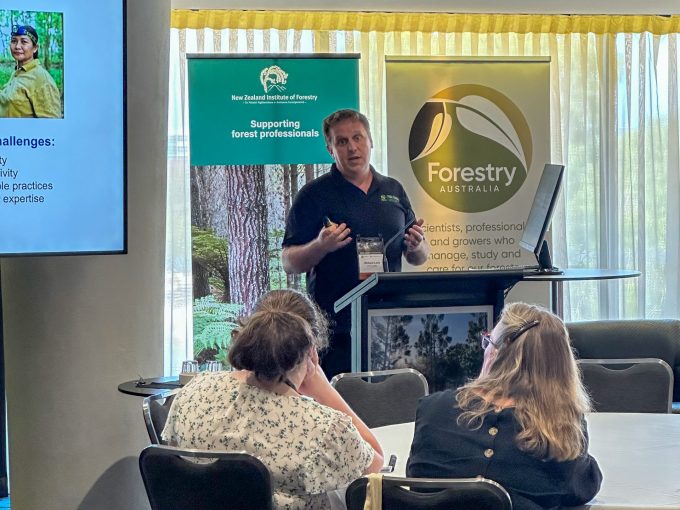
PEFC International APAC Manager Richard Laity talks through facilitating important smallholder dialogues.
Matt de Jongh, in his presentation, stressed the importance of making sustainable forestry understandable and accessible outside the industry. He highlighted the role of certification in preventing deforestation and ensuring sustainable forest products, stating,
“Certification assures consumers that the products they buy come from responsibly managed forests. This is crucial in preventing deforestation and promoting sustainability.”
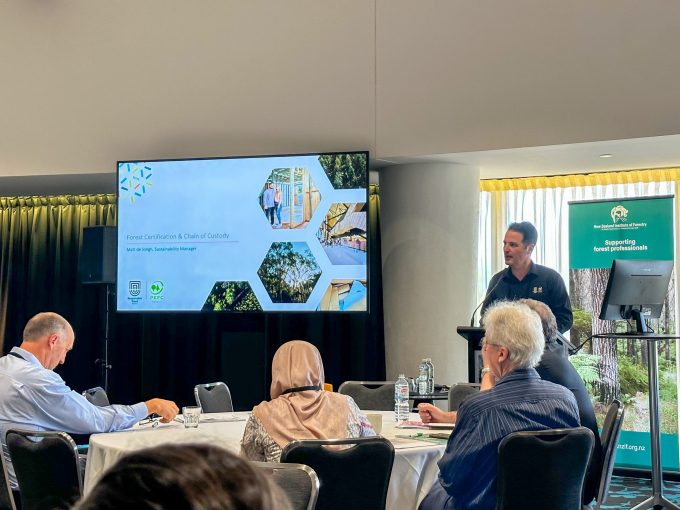
Matt de Jongh talks about building relationships outside of “industry eco chambers”.
Simon Dorries, speaking as the CEO of Responsible, discussed the endorsement process of the revised standard of sustainable forest management, AS/NZS 4708-2021. He shared key dates for transition and requirements, remarking,
“The new standard is a significant step forward in ensuring that the whole forest ecosystem is managed sustainably. It’s an opportunity for organisations to adapt to the latest needs and expectations of stakeholders.”
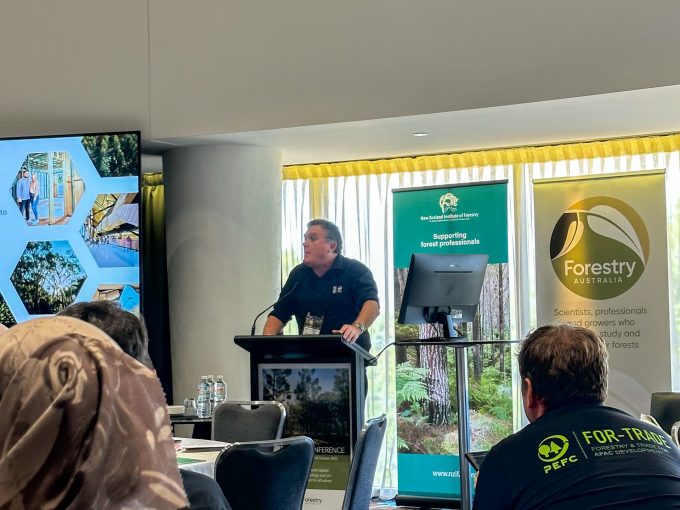
Simon Dorries presents at ANZIF 2023
The conference saw active participation from attendees who asked questions during the presentations, and visited the trade stand, enriching the discussions with their insights and expertise. Jonathan Tibbits reflected,
“We extend our gratitude to all who contributed to making this event a success and a rewarding experience for our organisation.”
The conference also provided Responsible Wood with a platform to engage with forest owners not yet certified but interested in finding out more about sustainable forest management certification, including small forest owners keen on exploring group certification. These interactions were invaluable in spreading awareness and knowledge about the importance of certification in ensuring sustainable forestry practices and accessing new markets for forest products. It is through such dialogues that the forestry industry can continue to make strides toward a more sustainable industry in the long term.
The conference spotlighted the vital role of certification in fostering sustainable forest management, responsible sourcing, and the importance of stakeholder engagement in shaping the industry’s future, including building much-needed social licence. The conference provided an invaluable platform for dialogue, knowledge sharing, and collaboration in the Australian and New Zealand forestry community. It emphasised the significance of responsible forest management, sustainability, and the role of certification in securing our natural capital for future generations.
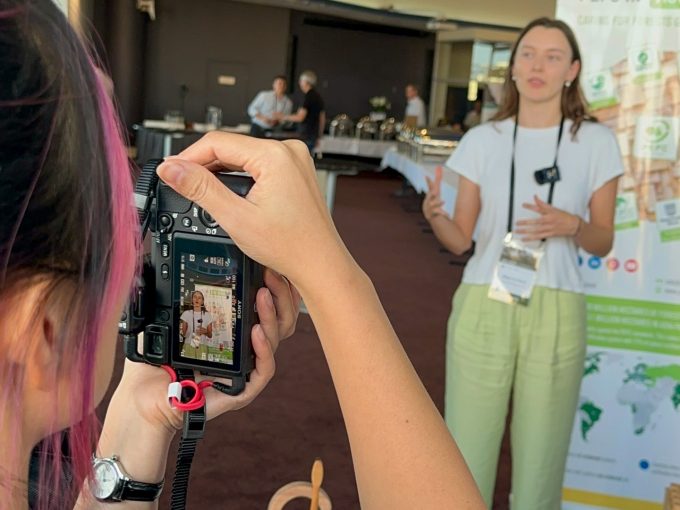
Ailsa Hurford talks about her inter-generational forestry experience with Hurfords

